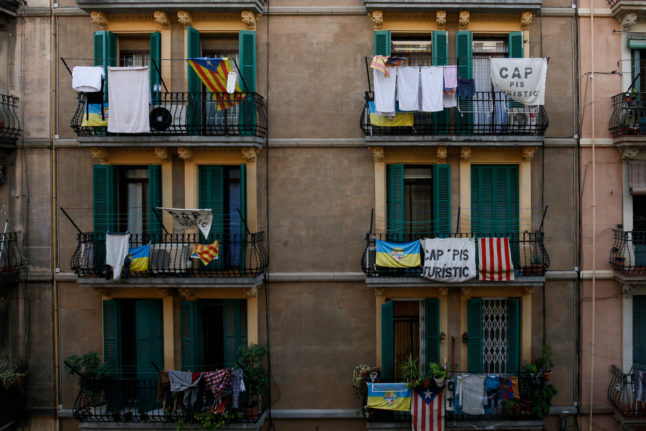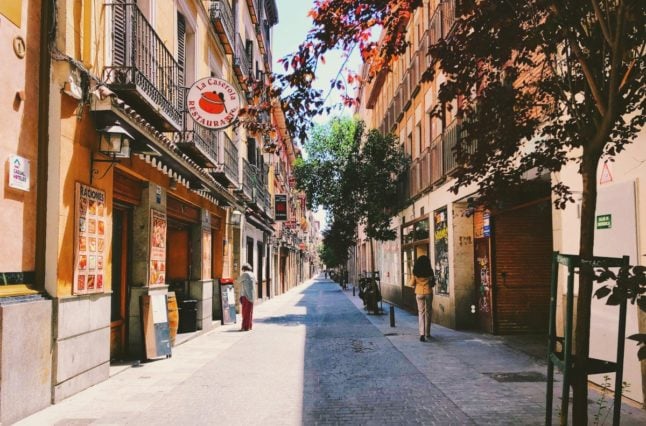Spain’s Housing and Urban Agenda Minister Isabel Rodríguez on Thursday said short-term holiday rentals “have to be limited” to guarantee access to housing to residents.
“Wherever there is a greater concentration of apartments for tourists, there is also pressure in the property market ,” Rodríguez told journalists at a press conference, adding that measures had to be implemented “with military precision” to ensure that Spaniards don’t spend more than 30 percent of their wages on rent or a mortgage.
For this, she called on all regional and municipal governments to make use of their executive powers to limit holiday lets in cities, towns and neighbourhoods where property prices are out of control.
“Stressed property markets” (zonas tensionadas), as described by the Spanish government, are those where residents spend more than a third of their monthly earnings on housing.
So far, Catalonia is the only region to declare its property and rental market “stressed”, giving them greater control over how much landlords can charge for rent.
Varying legislation restricting Airbnb-style rentals has already been introduced in recent years in numerous cities such as Valencia, Palma, Seville, Tarifa, Madrid, Barcelona, and San Sebastián, with varying degrees of success.
But despite there being rules and regulations for this relatively new form of holiday accommodation, it hasn’t been enough to prevent places like Málaga city centre from having a higher ratio of tourists ‘living there’ than locals.
READ MORE: ‘Get the f*ck out of here’ – Málaga plastered with anti-tourism stickers
Asturias and the Canary Islands are two of the autonomous communities which are currently preparing to roll out restrictions on a regional level.
READ MORE: How Spain’s Asturias region plans to limit short-term holiday lets
“I want to meet with the autonomous governments to discuss this matter with the Industry Minister, I do not want to encroach on their powers, but it is my concern as they’re (holiday lets) putting pressure on the residential market” Rodríguez stated.
Her words came after a meeting with the Spanish Cabinet which included Prime Minister Pedro Sánchez, Economy Minister Carlos Cuerpo and various representatives of Spain’s real estate market.
Spain’s increasing living and housing costs – coupled with a rise in tourists, digital nomads and other ‘affluent’ foreigners who seem unaffected by higher expenses – is causing unease among Spaniards who feel their quality of life is worsening.
It’s unclear whether Spain’s national government is simply passing the buck to the regions over the gargantuan task of fixing the country’s housing crisis, but Madrid did decide to scrap the country’s golden visa scheme which granted residency to wealthy non-EU nationals who purchased a Spanish property worth €500,000.
Spain’s Housing Minister said they have to be “more agile” when dealing with “these emergencies” and “prioritise” residential housing.
However, Spain currently lags behind the rest of EU when it comes to state-controlled social housing making up just 2.5 percent of the total, while in countries such as the Netherlands (30 percent), Austria (24 percent) and Denmark (20.9 percent) it is ten times that or more.
In fact, even with the Socialist government’s promise of providing 184,000 affordable housing units for rent, the number of legally registered holiday lets in Spain is far higher than that: 340,000.
READ ALSO: Why does hatred of tourists in Spain appear to be on the rise?



 Please whitelist us to continue reading.
Please whitelist us to continue reading.
Member comments